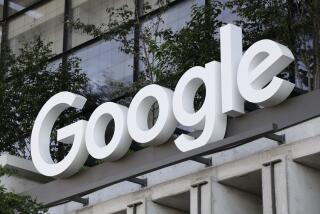Facebook to acquire WhatsApp

Facebook is making a mobile push with its deal to buy real-time messaging service WhatsApp.
SAN FRANCISCO — Facebook Inc., making its biggest bet yet that its future is in mobile devices, stunned the technology world by announcing it would pay $19 billion in cash and stock for a smartphone messaging app.
The giant social network is buying WhatsApp, a mobile messaging service that is immensely popular around the globe and has revolutionized how users — especially young people — communicate. With the app, users can send messages over the Internet rather than via wireless carriers that may charge for the service.
Since its debut five years ago, the tiny Mountain View, Calif., company has grown mostly by word of mouth and now has more than 450 million active users.
WhatsApp’s surging popularity caught the attention of Facebook and other Internet giants that have stumbled in their efforts to develop their own stand-alone messaging apps. The purchase underscored Facebook’s resolve to catch up in mobile messaging, the new standard of communication in the mobile era.
But the sky-scraping price that Facebook is paying for WhatsApp sent Facebook shares down nearly 3% in after-hours trading Wednesday. The acquisition — by far Facebook’s largest to date — marked a new high in the jaw-dropping prices being dangled before sought-after young technology companies.
Facebook paid about $1 billion for photo-sharing service Instagram in 2012, a price considered by many at the time to be too steep.
Facebook said it would pay $4 billion in cash and $12 billion in Facebook shares for WhatsApp. An additional $3 billion in restricted stock units will be granted to WhatsApp founders and employees. Those stock units will vest over the next four years, Facebook said.
“I understand the price tag because there is literally nothing anywhere like WhatsApp,” Tero Kuittinen, an analyst with mobile diagnostics firm Alekstra
WhatsApp is currently adding more than 1 million new users each day and has been an acquisition target for Google and other Internet giants.
Kuittinen said Facebook swiping WhatsApp could be a “nightmare” for those other companies.
WhatsApp belongs to a burgeoning new wave of mobile messaging apps that people use to connect with their closest friends and relatives, essentially creating a more intimate social network than Facebook and posing a competitive threat for how hundreds of millions of people spend their time and their money.
Mobile messaging apps have soared in popularity in the U.S. and, with the explosion in worldwide sales of smartphones, are already the go-to messaging tool in Europe, Asia and Latin America. Popular apps in the U.S. include WhatsApp, Kik and MessageMe. Kakao Inc.’s KakaoTalk and Tencent Holdings Ltd.’s WeChat are hot in Asian markets.
Facebook began its courtship of WhatsApp two years ago, culminating in negotiations that wrapped up over the weekend.
Mark Zuckerberg, Facebook’s founder and chief executive, said he had developed a close and trusting relationship with Jan Koum, WhatsApp’s founder and CEO, and convinced him that Facebook could help the young company grow more quickly and without pressure to run advertising on the service. And, as with its purchase of photo-sharing service Instagram, WhatsApp’s messaging product will continue to operate as a stand-alone business, Zuckerberg said.
“We think WhatsApp is on a clear path to have a billion people using their product,” Zuckerberg said. “Services that have a billion people using them are all incredibly valuable.”
WhatsApp fits Facebook’s mission to roll out new mobile products that allow people to “share any type of mobile content with anyone they want,” Zuckerberg said. Earlier this month, Facebook rolled out Paper, a sleek new mobile news reader app.
Koum will join Facebook’s board of directors. Koum said Facebook would help WhatsApp realize its goal of making mobile messaging easy for anyone in the world.
“I am confident that the combination of WhatsApp and Facebook will allow us to do amazing things together,” Koum said.
For Facebook, which has struggled to catch up in mobile messaging, landing a major player like WhatsApp had become a strategic imperative. Its chat service, Facebook Messenger, is popular with users but not as popular as other newer services.
Facebook Poke, which was supposed to compete with Snapchat, the popular mobile app that makes messages disappear after they are read, fell flat. Instagram Direct, a new feature on Instagram that lets people message each other, also hasn’t caught on.
Facebook tried to buy Snapchat last year for $3 billion, but Snapchat rebuffed the offer.
Kuittinen said the WhatsApp acquisition would be far more beneficial to Facebook than Snapchat would have been.
“Snapchat is really hot in North America, but it’s not really doing well in Southeast Asia, Latin America or other important markets,” he said. “What’s magical about WhatsApp is that it is universal. It’s huge on every continent.”






